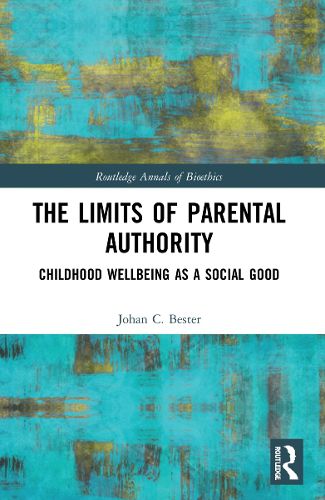Readings Newsletter
Become a Readings Member to make your shopping experience even easier.
Sign in or sign up for free!
You’re not far away from qualifying for FREE standard shipping within Australia
You’ve qualified for FREE standard shipping within Australia
The cart is loading…






This book offers a novel theory of childhood well-being as a social good. It re-examines our fundamental assumptions about parenting, parental authority, and a liberal society's role in the raising of children.
The author defends the idea that the good of a child is inexorably linked to the good of society. He identifies and critiques the problematic assumption that parenting is an extension of individual liberty and shows how we run into problems in medical decision-making for children because of this assumption. He develops an objective conception of what is good for a child in a liberal society, drawing on the assumptions of liberty, and from here constructs a set of things that society and its members owe children. There are ways in which society should support and intervene in parental decisions to guarantee a child's well-being. Ultimately, raising children is a social activity that requires input from society. The author then applies this theory of childhood well-being to develop a framework for medical decision-making for children. He also uses practical examples, such as vaccinations, parental leave, and healthcare access, to demonstrate the implications of his theory for public policy.
The Limits of Parental Authority: Childhood Wellbeing as a Social Good will be of interest to practitioners, scholars, and advanced students working in bioethics, political philosophy, and public health policy.
$9.00 standard shipping within Australia
FREE standard shipping within Australia for orders over $100.00
Express & International shipping calculated at checkout
This book offers a novel theory of childhood well-being as a social good. It re-examines our fundamental assumptions about parenting, parental authority, and a liberal society's role in the raising of children.
The author defends the idea that the good of a child is inexorably linked to the good of society. He identifies and critiques the problematic assumption that parenting is an extension of individual liberty and shows how we run into problems in medical decision-making for children because of this assumption. He develops an objective conception of what is good for a child in a liberal society, drawing on the assumptions of liberty, and from here constructs a set of things that society and its members owe children. There are ways in which society should support and intervene in parental decisions to guarantee a child's well-being. Ultimately, raising children is a social activity that requires input from society. The author then applies this theory of childhood well-being to develop a framework for medical decision-making for children. He also uses practical examples, such as vaccinations, parental leave, and healthcare access, to demonstrate the implications of his theory for public policy.
The Limits of Parental Authority: Childhood Wellbeing as a Social Good will be of interest to practitioners, scholars, and advanced students working in bioethics, political philosophy, and public health policy.